Project results, events, excursions
The aim of the interdisciplinary approach in the study programme is to provide students with a holistic view of integrated approaches to urban development and to apply appropriate methods. This is implemented in a "Study Project" in the second semester, which is interdisciplinary in nature and where students practice their acquired skills on current topics with the guidance of professors. The study project focuses on a specific problem solution and combines scientific analysis methods with design and creative skills. The students' teamwork skills are promoted through collaboration in international teams. This page shows projects results, as well as excursions and events that took place within the scope of the Study Project. Furthermore, other events and smaller workshops are listed here.
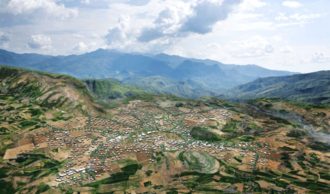
Integrated Urbanism
Studio Project
Study Programme Integrated Urban Development & Design
2022
The transformation from an agricultural to an industrialized society currently taking place in Ethiopia is characterized by fundamental changes in the country's rural and urban areas. The Ethiopian government's "Growth and Transformation Plan" envisages the development of numerous small towns. The supply of water, food, energy and social and transport infrastructure is to serve as the basis for increasing prosperity through economic growth and lead to greater security of supply.
For sustainable development of these new cities, consideration of resource and people flows within the urban system is critical, as these will determine the urban footprint of future urban systems - and thus intrinsic factors such as mobility and transportation at the city and regional levels.
In the study project, students learned how spatial implications and urban morphology relate to resource and people flows, applied parametric tools and methods for spatial analysis, and transferred them to simulate urban development scenarios. Each student group thereby worked on one case study, a small village in rural Ethiopia, in which a new school shall be the seed for the future urban development.
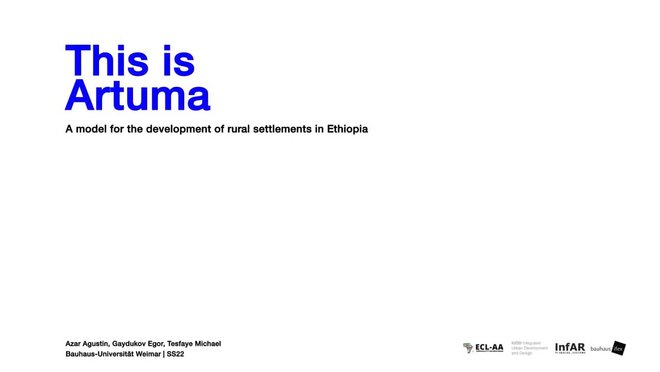
Artuma (IUDD Study Project, 2022)
Click the Play button to load and view external content from Vimeo.com.
Automatically load and view external content from Vimeo.com (You can change this setting at any time via our »Data protection policy«.)
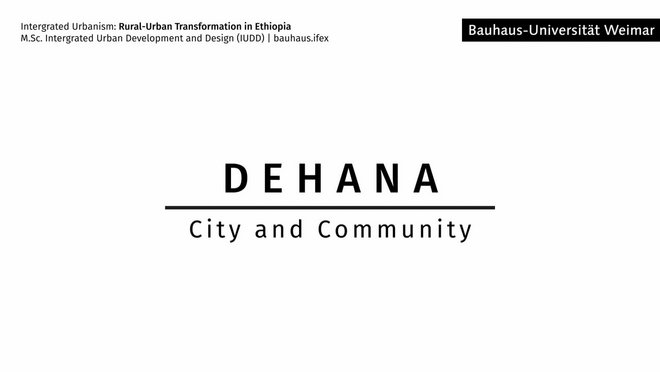
Dehana (IUDD Study Project, 2022)
Click the Play button to load and view external content from Vimeo.com.
Automatically load and view external content from Vimeo.com (You can change this setting at any time via our »Data protection policy«.)
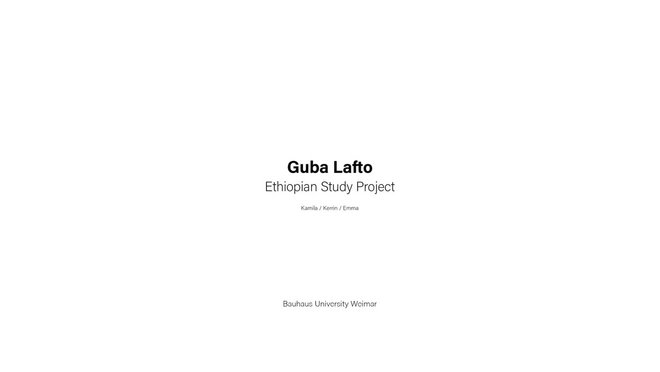
Guba Lafto (IUDD Study Project, 2022)
Click the Play button to load and view external content from Vimeo.com.
Automatically load and view external content from Vimeo.com (You can change this setting at any time via our »Data protection policy«.)
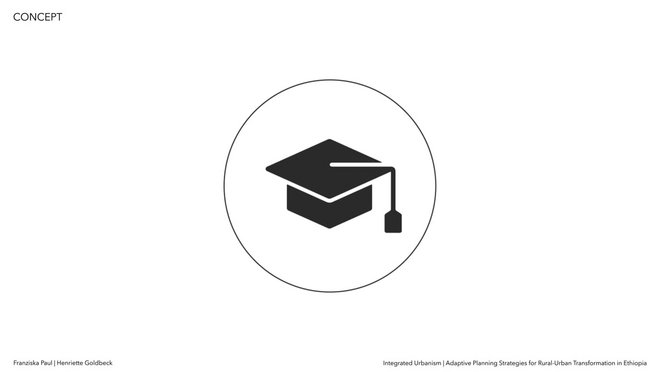
Kewet (IUDD Study Project, 2022)
Click the Play button to load and view external content from Vimeo.com.
Automatically load and view external content from Vimeo.com (You can change this setting at any time via our »Data protection policy«.)
